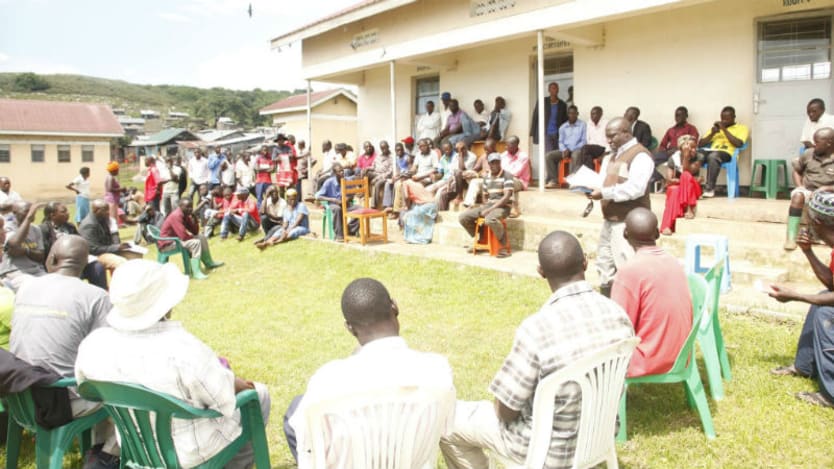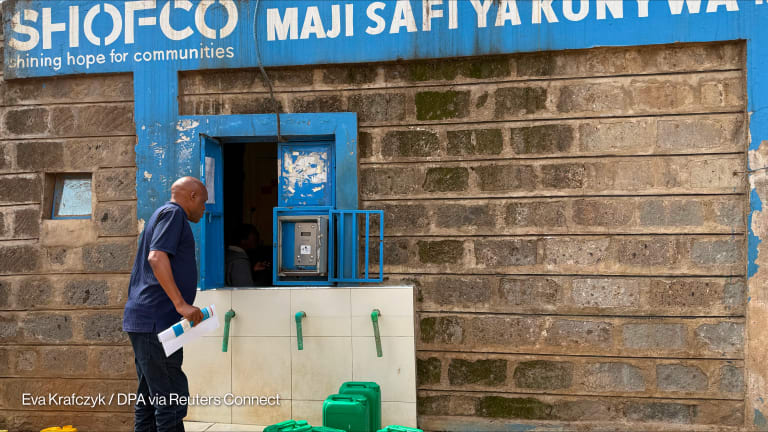
I have attended a number of conferences and workshops on localization over these last three years. Like most humanitarians, I am a fan of the principle. Yet I feel the agenda risks running out of steam in 2018, as so far too many thought leaders on the issue have concentrated on only one piece of the localization jigsaw — how to empower local humanitarian organizations. They have paid too little attention to the overall puzzle of how entire local systems cope and recover from crises.
Which is a shame, because there are great on-the-ground examples of this being put into practise. Look at the food security crises causing such stress across Africa. In many countries, the responses have genuinely moved on from surging-in international aid, and become more localized: Focusing on social safety nets and supply chains, involving the government, the private sector and yes, local nongovernmental organizations and Red Cross Societies. These local NGOs and national Red Cross Societies have a crucial role to play in targeting, delivery, and innovation, but their interventions are made more meaningful because they are complementing a holistic, national response. Humanitarian agencies have had to evolve accordingly. In Zimbabwe, for example, the World Food Programme has already switched from humanitarian programs to strengthening systems and institutions. This is systemic localization in practice.
Or consider the last 10 years of work in epidemic prevention, particularly HIV, tuberculosis and malaria.The Global Fund ensured localized approaches by funding through nationally led, country coordinating mechanisms, or CCMs. Within these CCMs, national Red Cross Societies, NGOs and community based organizations have played a critical role in promoting health seeking behaviour, but the CCMs ensured that all this local action was part of a national approach to counter the epidemics. That way, it has been possible to achieve impact to scale.
See more related topics:
► Red Cross tips for localizing humanitarian response
► Localization moves from advocacy to implementation in Indo-Pacific
This is the sort of localization that we need to be talking about: A holistic, systemic localization that considers the whole capacity of a country to cope, as independently as possible. This type of localization begins by understanding the systems and culture of service delivery precrisis. Its application focuses on restoring, adapting, or building that capacity.
Some humanitarians may balk at this. They argue such an approach is fine for stable, middle-income countries, but has little to offer failing states with no history of social protection or no capacity for systemic recovery. They may also argue that such localization should be part of the long game of development funding, while humanitarians focus on the short game of saving lives at immediate risk, even if that means substitution of local capacity to achieve it.
There are, of course, cases when this holds true. Likewise, it is true that space needs to be protected for specific, international mandates such as that of the International Committee of the Red Cross. But in a humanitarian sector dominated by complex, protracted emergencies lasting more than a decade, we are all playing the long game now. Our mindset needs to shift accordingly.
There are good reasons why humanitarian organizations will struggle with such a broader and deeper localization agenda. The short-term nature of appeals and emergency funding; lack of trust in governments; the need to preserve distance and neutrality; the survival instinct of international institutions; and the very fact that the sector is populated by people used to doing business differently. These will all deter progress. Yet the localization discourse can help in 2018 by exploring how such a holistic, localization approach can be applied in the major humanitarian crises of our day.
Donors such as the United Kingdom’s Department for International Development can help too. Firstly, because their broader mandate and investment portfolios put them in a better position to see the system strengthening opportunities and to advise humanitarian organizations accordingly. Secondly, because they can reward with investment those organizations that are seeking to localize their response and transition capacity as soon as possible.
Thanks to the World Humanitarian Summit, and the supporting work of groups such as the International Federation of the Red Cross, the Overseas Development Institute and others, localization became a buzzword in 2017. It will have more power and impact in 2018 if we broaden its scope from investment in local organizations to investment in local and national systems to cope with crises.
Search for articles
Most Read
- 1
- 2
- 3
- 4
- 5








